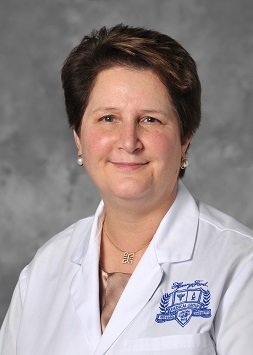New State Laws Regulate Prescribed Controlled Substances, Opiates

DETROIT – Doctors, pharmacists and patients are impacted by a series of new state laws regulating the prescribing and dispensing of controlled substances including opioid painkillers.
Two key provisions that impact people who prescribe controlled substances and patients who receive an opiate painkiller take effect June 1:
- Any person who prescribes controlled substances – doctors, pharmacists, dentists and veterinarians – must register with the Michigan Automated Prescription System (MAPS) before they can prescribe or dispense a controlled substance or opiate painkiller. A doctor must review a patient’s history on MAPS before prescribing any controlled substance that exceeds a three-day supply.
- Patients who are prescribed an opiate painkiller must receive opioid education before the medication is given. Patients must also sign a consent form acknowledging they received the education. This education includes risks and side effects of opioids, as well as safe storage and disposal. It must be repeated for different episodes of care or for new medications.
Under another provision effective July 1, a doctor treating a patient for acute pain can only prescribe a maximum seven-day supply of opioid pills within a seven-day period. Acute pain is defined as normal pain associated with an invasive procedure, trauma or disease that typically lasts for a limited amount of time.
These provisions are part of a package of laws passed last December to reduce prescription drug and opioid drug abuse in Michigan, which saw a 17-fold increase in fatal opioid-related overdoses from 1999 to 2016, according to the Michigan Department of Health and Human Services.
The new laws target commonly prescribed opiate painkillers such as Vicodin, morphine, oxycodone, Tylenol with codeine and tramadol. Commonly prescribed controlled substances are Adderall, Xanax, valium and Ritalin.
“Opioid abuse affects patients and their families from all backgrounds,” says Michelle Schreiber, M.D., Henry Ford’s chief quality officer and co-leader of its pain management and opioid task force. “We recognize that we must assess and appropriately manage patients’ pain and provide compassionate and appropriate comfort and relief, while following the provisions in these new laws and ensuring patient safety.”
MAPS is the state’s prescription drug monitoring program. It is a valuable resource for prescribers to identify patients who may be at risk from these potent medications. It also enables doctors and pharmacists to quickly identify all the controlled substances used by a patient. MAPS will also help identify patterns of abuse, suspicious prescribing, doctor-shopping and pharmacy shopping by patients.
Other highlights of the laws:
- The consent form, developed by the state and required as part of the opioid education, is called Opioid Start Talking. Once signed, the form will be included in the patient’s medical record. For those under age 18, their parent or legal guardian must receive the education before their child receives their prescription. Only a parent or legal guardian can sign the Opioid Start Talking form for a minor.
- The Opioid Start Talking form comes in three languages: English, Arabic and Spanish.
- Henry Ford patients can request prescription refills through either their MyChart account or by calling their doctor’s office. However, additional education may be required if the care or prescription changes.
Henry Ford has embarked on its own initiative to curb prescription and opioid use among its more than 1.5 million patients. Launched in 2016, the initiative aims to reduce by 40 percent the number of opioid pills and patches prescribed across all aspects of care in Henry Ford hospitals and ambulatory clinics over a three-year period. To date, Henry Ford has achieved a 19 percent reduction in prescribed opioid pills and patches, which equates to nearly 490,000 fewer pills and patches prescribed to patients.
“Our opioid reduction goal is an actionable response to confront the crisis and advance better practices for pain management for our patients,” Dr. Schreiber says.
The initiative includes:
- Standardized written guidelines for pain management and opioid reduction for non-cancer pain, including addiction assistance and counseling.
- Education programs for providers and clinical staff. An analytics tool for evaluating prescribing practices.
- Standardized patient protocols in primary care clinics for pain assessment, opioid assessment, urine toxicology screening and patient opioid contacts.
- Expanded behavioral health services and embedding behavioral health experts in primary care clinics.
- Expanded pain management services including alternative non-medication approaches such as acupuncture and physical therapy.
“By standardizing our clinical practices and empowering providers and staff to have open and honest discussions, we believe we can make a real difference in curbing opioid abuse across southeast Michigan,” Dr. Schreiber says.
Patients who have questions or concerns about their opioid prescription should contact their doctor who prescribed their medication. Patients who think they may have an opioid addiction or are concerned about a family member’s opioid use should call Henry Ford’s Behavioral Health Services at 800.422.1183 or visit www.henryford.comOpioidAddiction.
###
MEDIA CONTACT: David Olejarz / David.Olejarz@hfhs.org / 313.874.4094
.svg?iar=0&hash=F6049510E33E4E6D8196C26CCC0A64A4)

/hfh-logo-main--white.svg?iar=0&hash=ED491CBFADFB7670FAE94559C98D7798)









